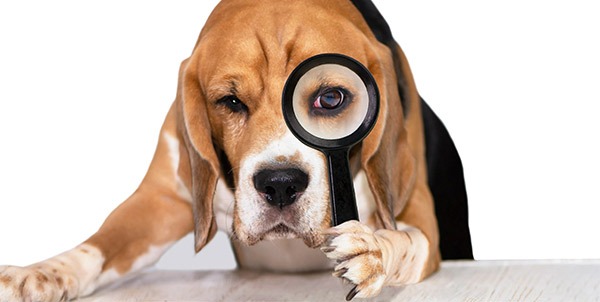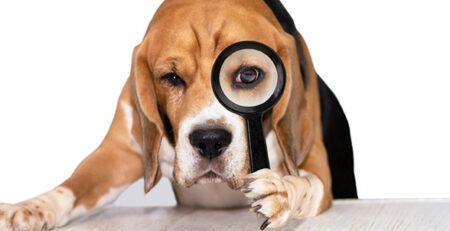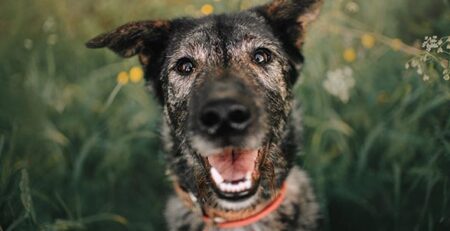Table of Contents
April 28 marks Dog Day, a day dedicated to “man’s best friend” and this fantastic bond of friendship whose origins are lost in the mists of time.
A unique relationship between man and dog.
No one understands our state of mind better than he does.
He who with a flick of the tail chases away boredom and sadness.
He who always brings a smile with his funny faces.
He who is always there (except for the three minutes when he empties the bowl).
Simply and extraordinarily him: THE DOG.
A friendship that we take for granted and that even our ancestors already understood.
A bond across the millennia
The dog is a carnivorous mammal whose ancestor is the wolf, from which it has since been gradually distinguished through a process of selection and domestication.
A bond, that between man and dog, has its roots in prehistory: fossils from more than 30,000 years ago testify that the ancestor of the dog was already present and integrated into early human society.
Ancient civilizations attributed magical or mystical roles and qualities to the dog
In the Egyptians, the God Anubis, guardian of burial places, judge and protector of the dead, was represented in the form of a canid.
In Greco-Roman mythology, the dog was seen as a companion and guide to the souls of the dead. Cerberus is an example of this.
The Mongols, on the other hand, believed that dogs were brothers to humans as they were both children of the great mother, the prairie, an entity endowed with a soul.
Celts and Irish associated warriors with the dog as a totemic animal with which to identify and from which to be inspired. The Irish dog not only protected them in war and hunting, activities considered sacred, but thanks to its miraculous saliva, capable of healing many diseases, it was considered a healer in its own right.
What has changed from its origins to the present day
The dog-human pair, therefore, has its origins in very ancient times.
Moving to more recent times, however, there has been that process of breed selection whereby man has “destined” the dog for multiple purely instrumental activities.
In fact, crosses have created individuals with specific functional characteristics: hunting dogs, guard dogs, herding dogs, companion dogs, war dogs, anti-poaching dogs, and pet therapy dogs.
This use of the dog in a utilitarian sense has strongly challenged the disinterested and affective “human-animal” alliance, transforming it in some cases into “domination” and “manipulation,” the most terrible derivation of which is animal experimentation.
The deplorable act of animal experimentation at the origin of Dog Day
The choice of the date, April 28 to celebrate Dog Day, is not random. April 28 commemorates the “liberation” of beagle puppies from the place of horrors that is “Green Hill.”
The idea of Dog Day originated from Petsblog, which in 2004 launched a poll to its readers on what was the right date to dedicate to our four-legged friend, and among the dates suggested was April 28.
The choice was unanimous, and on April 28 it also became a realization that the dog is not an object.
Dog Day, therefore, becomes a gesture of constant commitment and responsibility in defending the health and dignity of those who have no voice to assert their rights.
But is man really the dog’s friend?
While it is unequivocal that the dog is man’s best friend it is a stretch to say that, conversely, man is dog’s best friend.
Too often the dog is considered a living being without intelligence, without emotion, for some without a heart. “It’s just a dog!” how many times have we heard that?
But, fortunately, we are now seeing a reversal of this trend.
Recent years have seen a cultural and legislative revolution in this regard, with the recognition of the four-legged friend with dignity and rights on par with human beings.
However, rather than spoiling our 4-legged companion with food and clothes, from time to time we should try to be “a little dog.”
Immerse ourselves in his or her point of view in order to be able to understand and comprehend his or her needs, doing what we can to ensure his or her mental and physical well-being.
We must learn to look at animals as nonhuman, sentient individuals.
Investigate their minds to discover their emotions and motivations.
In this fascinating and rewarding but complicated task, the cognitive approach helps us.
The cognitive approach
The cognitive approach is a science in which psychology, philosophy, and ethology now converge and which provides us with the tools to rediscover and restore that ancient and millennia-old empathic relationship that has brought man and dog together and bound them together since the dawn of time and which gradually, has become marred and corrupted.
Cognitive and zoo-anthropological schools of thought are helping to restore the proper value and due dignity to the living being dog, eradicating the archaic and bigoted conventions that the animal in general does not have its own autonomy of thought.
A valuable ally for really knowing and understanding the dog
The Dog Educator is a professional who can help us understand, direct, and manage dog behaviors.
He is the ally who can provide all the information needed to set up a proper relationship with the dog.
Indeed, often, while we love animals, we lack the knowledge necessary to ensure that their ethological coordinates are respected.
Enhancing the dog’s proclivities, turning them into skills and enrichment opportunities, nurturing them with fulfilling relationships-this is the true celebration of the dog.
Let it be a celebration of the Dog every day, with an authentic and equal relationship.
This is the most important and special gift we can give our best friend.
La Veterinaria Clinic and its Team of specialists, including dog educators, is operational every day, including holidays and 24 hours a day with Emergency Service from 8 p.m. to 8 a.m.
For the joy of seeing them HAPPY











